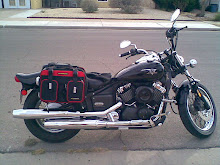Worth Reading
Excerpts from an essay in My Losing Season, a forthcoming book from Pat Conroy (author of The Prince of Tides, The Great Santini, The Lords of Discipline, and Beach Music.)
The true things always ambush me on the road and take me by surprise when I am drifting down the light of placid days, careless about flanks and rearguard actions. I was not looking for a true thing to come upon me in the state of New Jersey. Nothing has ever happened to me in New Jersey. But came it did, and it came to stay.
In the past four years I have been interviewing my teammates on the 1966-67 basketball team at the Citadel for a book I'm writing. For the most part, this has been like buying back a part of my past that I had mislaid or shut out of my life. At first I thought I was writing about being young and frisky and able to run up and down a court all day long, but lately I realized I came to this book because I needed to come to grips with being middle-aged and having ripened into a gray-haired man you could not trust to handle the ball on a fast break.
When I visited my old teammate Al Kroboth's house in New Jersey, I spent the first hours quizzing him about his memories of games and practices and the screams of coaches that had echoed in field houses more than 30 years before. Al had been a splendid forward-center for the Citadel; at 6 feet 5 inches and carrying 220 pounds, he played with indefatigable energy and enthusiasm. For most of his senior year, he led the nation in field-goal percentage, with UCLA center Lew Alcindor hot on his trail. Al was a battler and a brawler and a scrapper from the day he first stepped in as a Green Weenie as a sophomore to the day he graduated. After we talked basketball, we came to a subject I dreaded to bring up with Al, but which lay between us and would not lie still.
"Al, you know I was a draft dodger and antiwar demonstrator."
"That's what I heard, Conroy," Al said. "I have nothing against what you did, but I did what I thought was right."
"Tell me about Vietnam, big Al. Tell me what happened to you," I said.
The essay is titled "An Honest Confession by an American Coward," and I want to share the conclusion he comes to after spending an evening with his old teammate, and the soul-searching which that evening caused:
I have come to a conclusion about my country that I knew then in my bones but lacked the courage to act on: America is good enough to die for even when she is wrong.
Read the essay here courtesy of Family Security Matters.
The true things always ambush me on the road and take me by surprise when I am drifting down the light of placid days, careless about flanks and rearguard actions. I was not looking for a true thing to come upon me in the state of New Jersey. Nothing has ever happened to me in New Jersey. But came it did, and it came to stay.
In the past four years I have been interviewing my teammates on the 1966-67 basketball team at the Citadel for a book I'm writing. For the most part, this has been like buying back a part of my past that I had mislaid or shut out of my life. At first I thought I was writing about being young and frisky and able to run up and down a court all day long, but lately I realized I came to this book because I needed to come to grips with being middle-aged and having ripened into a gray-haired man you could not trust to handle the ball on a fast break.
When I visited my old teammate Al Kroboth's house in New Jersey, I spent the first hours quizzing him about his memories of games and practices and the screams of coaches that had echoed in field houses more than 30 years before. Al had been a splendid forward-center for the Citadel; at 6 feet 5 inches and carrying 220 pounds, he played with indefatigable energy and enthusiasm. For most of his senior year, he led the nation in field-goal percentage, with UCLA center Lew Alcindor hot on his trail. Al was a battler and a brawler and a scrapper from the day he first stepped in as a Green Weenie as a sophomore to the day he graduated. After we talked basketball, we came to a subject I dreaded to bring up with Al, but which lay between us and would not lie still.
"Al, you know I was a draft dodger and antiwar demonstrator."
"That's what I heard, Conroy," Al said. "I have nothing against what you did, but I did what I thought was right."
"Tell me about Vietnam, big Al. Tell me what happened to you," I said.
The essay is titled "An Honest Confession by an American Coward," and I want to share the conclusion he comes to after spending an evening with his old teammate, and the soul-searching which that evening caused:
I have come to a conclusion about my country that I knew then in my bones but lacked the courage to act on: America is good enough to die for even when she is wrong.
Read the essay here courtesy of Family Security Matters.


0 Comments:
Post a Comment
<< Home